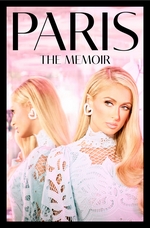Associated Press Plays With Paris Hilton
Predominant news reporter Jocelyn Noveck and his Associated Press team did an experment on banning Paris Hilton news reports this week. You might have already noticed that the internet is overwhelmed with news reports about Paris Hilton, and she’s the most searched celebrity in news sectons. Almost every day, there’s something new and very ordinary reports about her, and it doesn’t come from the Associated Press.
The initial story of the ban from Associated Press was released yesturday morning, but funny enough, at the same time, the Paris Hilton driving issue popped up and spread everywhere.
However, it actually turned out to be only an experiment. Besides, even if many jealous haters want to put an end of Paris Hilton’s publicity in the media, it will never happen. The Paris Hilton craziness is very strong and you can’t break it.
Associated Press reports are unique in the sense that they report the truth and try to avoid putting its own spin.
The Associated Press is right when they say that they report too many news about Paris Hilton. At least, two or three Paris Hilton articles appear on CNN.com’s mainpage every month. That’s a lot! But it’s heaven for a Paris Hilton fan. And don’t get me wrong, it’s the people, fans and haters together, who make this possible.
Jocelyn Noveck’s analysis:
NEW YORK – So you may have heard: Paris Hilton was ticketed the other day for driving with a suspended license. Not huge news, even by celebrity-gossip standards. Here at The Associated Press, we put out an initial item of some 300 words. But it actually meant more to us than that. It meant the end of our experimental blackout on news about Paris Hilton.
It was only meant to be a weeklong ban — not the boldest of journalistic initiatives, and one, we realized, that might seem hypocritical once it ended. And it wasn‘t based on a view of what the public should be focusing on — the war in Iraq , for example, or the upcoming election of the next leader of the free world, as opposed to the doings of a partygoing celebrity heiress/reality TV star most famous for a grainy sex video.
It turned out that people noticed plenty — but not in the way that might have been expected. None of the tens of thousands of media outlets that depend on AP called in asking for a Paris Hilton story. No one felt a newsworthy event had been ignored. (To be fair, nothing too out-of-the-ordinary happened in the Hilton universe.)
The reaction was to the idea of the ban, not the effects of it. There was some internal hand-wringing. Some felt we were tinkering dangerously with the news. Whom, they asked, would we ban next? Others loved the idea. “I vote we do the same for North Korea ,” one AP writer said facetiously.
During “blackout week,” the AP didn‘t mention Hilton‘s second birthday party at a Beverly Hills restaurant, at which a drunken friend reportedly was ejected by security after insulting Paula Abdul and Courtney Love . And editors asked our Puerto Rico bureau not to write about her visit there to hawk her fragrance. However, her name did slip into copy unintentionally three times, as background: in stories about Britney Spears , Nicole Richie , and even in the lead of a story about Democrats in Las Vegas.
Also by then, an internal AP memo about the ban had found its way to the outside world. The New York Observer quoted it on Wednesday, and the Gawker.com gossip site linked to it. Howard Stern was heard mentioning the ban on his radio show, and calls came in from various news outlets asking us about it. On Editor and Publisher magazine‘s Web site, a reader wrote: “This is INCREDIBLE, finally a news organization that can see through this evil woman.” And another: “You guys are my heroes!”
We also learned that Lloyd Grove, former columnist for the New York Daily News, had attempted a much longer Paris Hilton blackout. He began it a year into his “Lowdown” column and stuck to it, he says, for two years until the column was discontinued last October — except for a blind item (no names) about Hilton crashing a pre-Oscar party.
Well, not really. “The blackout was a really heartfelt attempt on my part,” he says, “to get publicity for myself.”
One measure of Hilton‘s fame: She was No. 5 last year on the Yahoo Buzz Index, a list of overall top searches on the Web site (her ever-so-brief buddy Spears is a perennial No. 1).
Jeff Jarvis, who teaches journalism at the City University of New York, decries the “one-size-fits-all disease” afflicting media outlets, who feel that “everybody‘s covering it, so we must, too.” Even The New York Times, he noted, had substantial coverage of a hearing concerning where Anna Nicole Smith — perhaps the one person who rivaled Hilton in terms of fame for fame‘s sake — would be buried.
So what have we learned from the ban? “It‘s hard to tell what this really changes, since we didn‘t have to make any hard decisions,” says Jesse Washington, AP‘s entertainment editor. “So we‘ll continue to use our news judgment on each item, individually.”
Which means that for the immediate future, if not always, we‘ll still have Paris.
Posted: March 1st, 2007
Comments:
none
![]()

